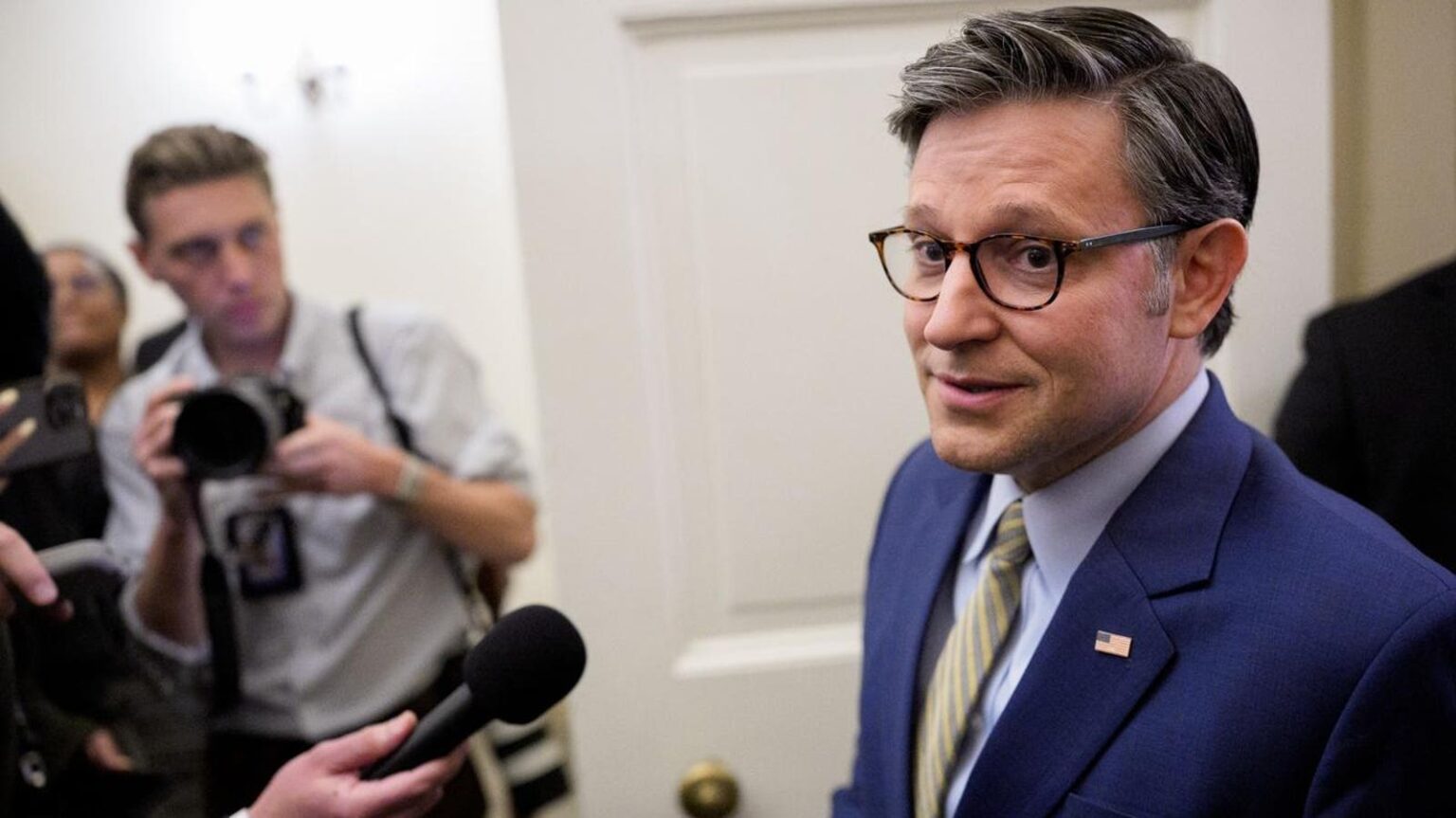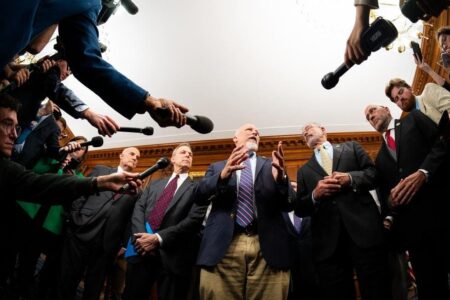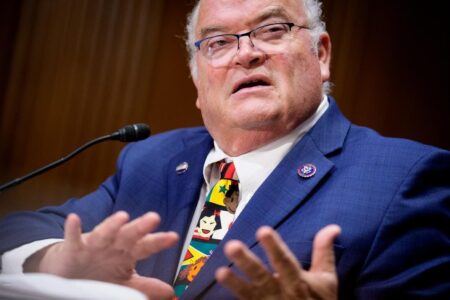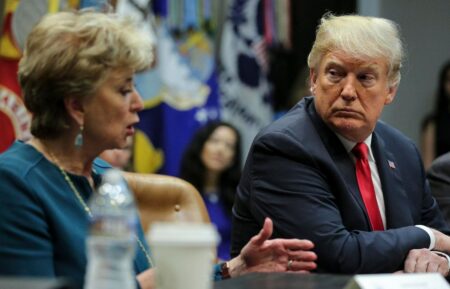Republican lawmakers in the House of Representatives passed sweeping reconciliation legislation early Thursday that, among other things, would repeal several key federal student loan forgiveness and repayment programs and slash more than $300 billion in education-related spending. The bill narrowly passed by a 215 to 214 vote, mostly along party lines. The student loan reforms are part of a broader effort by Congressional Republicans to slash federal spending to help offset the costs of extending expiring tax cuts.
“President Trump’s America First agenda is finally here, and we are advancing that today,” said House Speaker Mike Johnson (R-LA) shortly after the bill’s passage.
“Today we cleared a huge hurdle, and we are one step closer to delivering on our promise to the American people to cut government waste,” said Education and Workforce Committee Chairman Tim Walberg (R-MI) in a statement on Thursday. “It’s time we stopped asking taxpayers to foot the bill for our broken student loan system that has left borrowers in trillions of dollars of debt and has caused college costs to balloon. It’s time we stopped asking a factory worker in Michigan or a rancher in Texas to subsidize the student debt of a lawyer in Manhattan. I urge my colleagues in the Senate to end the status quo and get this bill to the President’s desk.”
While the reforms to student loan forgiveness and repayment programs are massive in scope, and the House’s passage of the legislation is a key step in the process, the bill is not enshrined into law quite yet. Here’s what’s in the legislation, and what student loan borrowers should know.
Reconciliation Bill Would Repeal Student Loan Forgiveness Programs
The reconciliation bill would make major changes to federal student loan forgiveness programs, including:
- Repealing Biden-era regulations governing Borrower Defense to Repayment and Closed School discharges, student loan forgiveness programs designed to provide relief to borrowers defrauded or misled by their school;
- Eliminating Public Service Loan Forgiveness eligibility for medical and dental residents;
- Prohibiting the Department of Education from enacting new broad student loan forgiveness programs through regulatory action, as President Joe Biden had tried to do;
- Allowing tax relief on student loan forgiveness and cancelled student debt to expire, making the events potentially taxable again, depending on the program;
The bill would preserve tax relief for student loan discharges based on a student loan borrower’s death or total and permanent disability.
Legislation Would Make Major Changes To Student Loan Repayment Plans
The reconciliation legislation would also make significant changes to federal student loan repayment programs, upending decades of precedent. The changes include:
- Repealing the Income-Contingent Repayment plan, Pay-As-You-Earn plan, and Saving on a Valuable Education plan. ICR, PAYE, and SAVE are all income-driven repayment programs that provide borrowers with affordable payments and a pathway to student loan forgiveness, usually after 20 or 25 years in repayment. Borrowers in ICR, PAYE, or SAVE would be automatically moved into a modified version of the Income-Based Repayment plan, which may result in higher payments, particularly for those who had been enrolled in PAYE, SAVE, or a newer version of IBR.
- Creating a new income-driven repayment plan called the Repayment Assistance Plan, or RAP. The RAP plan would have higher monthly payments for lower-income borrowers compared to ICR, IBR, PAYE, and SAVE, and would push out student loan forgiveness to a 30-year repayment term. For new borrowers, RAP would be the only income-driven repayment option available. Existing borrowers would maintain access to IBR; they could opt into RAP, but if they do so, they would be stuck and prohibited from changing repayment plans again.
- Eliminating the Extended and Graduated repayment plans for new student loan borrowers. All new borrowers going forward would only be able to access either a modified Standard repayment plan or the RAP plan.
The changes would be particularly devastating to Parent PLUS borrowers. Most Parent PLUS borrowers not already enrolled in the ICR plan would be effectively cut off from any income-driven repayment plan and most pathways to student loan forgiveness, including through PSLF.
Bill Would Make Changes To Student Loan And Federal Aid Programs
The Republican bill would also make major reforms to the disbursement of federal aid. The legislation would phase out or severely limit the Graduate PLUS and Parent PLUS programs, which advocacy groups argue would force many families to rely more on private student loans. Private student loans generally have fewer consumer protections and more limited repayment options.
The bill would also make major changes to Pell Grant disbursements, which some advocates have argued would limit higher education accessibility to lower-income students and families. Pell Grants are a form of federal student aid that does not have to be repaid.
Changes To Student Loan Forgiveness And Repayment Plans Are Not Final Yet
While the passage of the reconciliation bill by the House of Representatives was a key step in the process of the bill becoming law, it’s not a done deal yet. Now the bill heads to the Senate, where Republican lawmakers could make changes to the legislation’s provisions. But it’s unclear whether Republican senators will scale back the provisions impacting student loan forgiveness and repayment programs.
“Comprehensive reform of higher education is needed,” said Senator Bill Cassidy (R-LA), chair of the Senate Health, Education, Labor, and Pensions Committee President in remarks on the Senate floor on Wednesday. “Trump and Secretary McMahon are making progress, including fixing our broken student loan program. But, congressional action is needed to create lasting change.” Cassidy pointed to pending legislation in the Senate to repeal the SAVE plan, eliminate the Graduate PLUS program, and eliminate most existing income-driven repayment plan options – all of which are elements of the House version of the bill that Republican lawmakers passed early Thursday.
Student loan borrower advocacy organizations slammed the legislation.
“Rather than check the abuses of the executive branch, Congressional Republicans appear ready to abuse the reconciliation process to rewrite higher education policy—shrinking access to federal financial aid, cutting or eliminating grants for about two-thirds of Pell recipients, removing guardrails that protect students from predatory schools, and placing enormous pressure on state higher education budgets,” said Mike Pierce, executive director of Student Borrower Protection Center, in a statement during a Senate Committee on Health, Education, Labor, and Pensions hearing on Wednesday. “The result will push millions of families into the private loan market and, in the same bill, gut the CFPB—the regulator charged with protecting these very same families.”
All eyes are now on the Senate as lawmakers evaluate whether to change the provisions of the House bill that would make significant reforms to federal student loan forgiveness and repayment plans.
Read the full article here
















